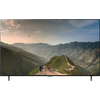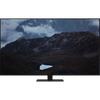A comparison of specs, key information, reviews, and best pricing from top retailers
Last updated -- hours ago | Report incorrect information
What we think

The PerfectRec TV team Learn more
Updated January 10, 2024·
Choose the LG QNED90 if you prioritize better performance in bright rooms and a wider viewing angle, which is ideal for group viewing. However, it generally costs more. If you prefer a TV that is often less expensive and offers better sound quality with its built-in speakers, consider the Samsung Q80B. It also has slightly better gaming performance, but it's not as well-suited for bright environments or wide seating arrangements. Give Feedback
this description is based on the product variant with some specs and product variant with some specs. At the time of writing, the variant with some specs cost some dollars and the variant with some specs cost some dollars.
Advantages of the LG QNED90 (LCD)
- Good for dark room
- Very good for news, talk, & other TV
Advantages of the Samsung Q80B (LCD)
- Very good motion processing
Key differences
Cost
$2,000
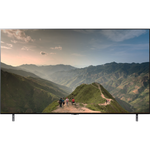
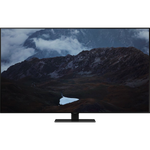
$998
$500
$1,000
$1,500
$2,000
$2,500
$3,000
The LG QNED90 (LCD) has a price of $2,000 and the Samsung Q80B (LCD) costs $998.
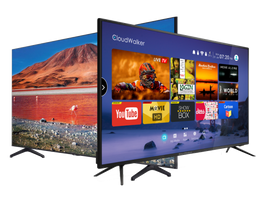
Let Us Help Find Your Perfect TV
Find your new TV
Key similarities
Picture Quality
7.3


7.1
5.60/10
CONTRAST
5.33/10
7.4/10
COLOR VOLUME SCORE
7.5/10
LED FALD
PANEL TYPE
LED FALD
IPS
PANEL SUB-TYPE
IPS
The LG QNED90 (LCD) and Samsung Q80B (LCD) both have good picture quality.
Movies & TV
6.8


6.4
5.60/10
CONTRAST
5.33/10
5.3/10
BLACK UNIFORMITY
5.2/10
7.5/10
UPSCALING
7.5/10
Yes
HDR10 SUPPORT
Yes
No
HDR10+ SUPPORT
Yes
Yes
DOLBY VISION SUPPORT
No
The LG QNED90 (LCD) and Samsung Q80B (LCD) are both only fair for movies & TV.
The LG QNED90 is fair for watching movies and cinematic TV mainly due to its contrast and black uniformity, which are not exceptional, making dark scenes in movies less impactful. Similarly, the Samsung Q80B, while offering slightly better gray uniformity and colors out of the box, still falls short with its contrast, local dimming, and black uniformity, compromising the depth and detail in darker content. Viewing angles are decent on both models, but the weaknesses in those very important aspects for cinematic viewing lead to a fair assessment for both TVs.
Sports
6.7


6.8
7.5/10
MOTION PROCESSING
8.0/10
120Hz
REFRESH RATE
120Hz
8.0/10
INPUT LAG SCORE
10.0/10
7.5/10
UPSCALING
7.5/10
8.7/10
SDR BRIGHTNESS SCORE
8.8/10
Yes
HLG SUPPORT
Yes
The Samsung Q80B (LCD) and LG QNED90 (LCD) are both only fair for sports.
The LG QNED90 and the Samsung Q80B are both fair options for watching sports due to their adequate motion handling and response times that allow for smooth action; however, they may not handle reflections as well, which can be distracting in bright rooms. While both TVs offer good viewing angles, their performance in producing uniform grays might show some inconsistencies during sports, especially on larger playing fields like football or soccer.
Gaming
8.1


8.2
7.6/10
RESPONSE TIME SCORE
8.1/10
8.0/10
INPUT LAG SCORE
10.0/10
7.5/10
MOTION PROCESSING
8.0/10
70.0/100
GAMING LOCAL DIMMING
60.0/100
8.6/10
GAME HDR BRIGHTNESS SCORE
8.0/10
The Samsung Q80B (LCD) and LG QNED90 (LCD) are both very good for gaming.
The LG QNED90 and the Samsung Q80B both excel in gaming due to their low response time and input lag, ensuring swift on-screen movements and timely reaction to user inputs respectively. Both TVs also offer a high refresh rate, which ensures smoother visuals, especially important for fast-paced gaming.
Cartoons & Animation
7.6


7.6
7.8/10
COLOR GAMUT SCORE
7.3/10
7.4/10
COLOR VOLUME SCORE
7.5/10
8.7/10
SDR BRIGHTNESS SCORE
8.8/10
7.6/10
COLORS OUT OF THE BOX SCORE
7.8/10
5.8/10
GRAY UNIFORMITY
6.4/10
The LG QNED90 (LCD) and Samsung Q80B (LCD) are both good for cartoons & animation.
The LG QNED90 and Samsung Q80B are appreciated for cartoons and animation because both TVs exhibit good color performance right out of the box and an impressive color gamut, ensuring vibrant and varied hues. While both also have good color volume and decent gray uniformity which are somewhat important, the LG QNED90 generally offers better contrast and SDR brightness making it slightly better for these types of content.
News, Talk, & Other TV
8.0


7.8
8.7/10
SDR BRIGHTNESS SCORE
8.8/10
7.5/10
UPSCALING
7.5/10
Although they have very similar scores, PerfectRec considers LG QNED90 (LCD) to be very good for news, talk, & other TV, while the Samsung Q80B (LCD) is good.
The LG QNED90 excels in watching news, talk shows, and TV programs due to its very good upscaling and SDR brightness, providing clear images from lower resolution content and ensuring visibility in well-lit environments, complemented by its good performance in color accuracy, color gamut, local dimming, and contrast.
Bright Room
7.7


7.4
7.7/10
VIEWING ANGLE
7.4/10
8.7/10
SDR BRIGHTNESS SCORE
8.8/10
8.3/10
HDR BRIGHTNESS SCORE
7.7/10
6.0/10
REFLECTIONS SCORE
6.0/10
The LG QNED90 (LCD) and Samsung Q80B (LCD) are both good for bright room.
The LG QNED90 is well suited for bright rooms with very good SDR and HDR brightness and decent reflection handling, offering vibrant images even in well-lit environments. Meanwhile, the Samsung Q80B also offers very good SDR brightness, with somewhat lower HDR brightness compared to the LG, but similarly manages reflections effectively, making it another good option for viewing in bright rooms. Contrast, color volume, and color gamut are somewhat important and both TVs perform competently in these areas, but their brightness and reflection handling are the key factors for bright-room viewing.
Give feedback
We’re constantly working to improve.
How the LG QNED90 (LCD) and the Samsung Q80B (LCD) compare to other TVs
Spec Comparison
| LG QNED90 (LCD) | Samsung Q80B (LCD) |
GENERAL | |||
|---|---|---|---|
| Price | |||
$2,000 | $998 | ||
Brand | |||
Brand | LG | Samsung | |
Release Date | |||
Release Date | April 1, 2021 | April 3, 2022 | |
Full name | |||
Full name | 65QNED90 | QN65Q80B | |
Screen Size | |||
Screen Size | 65" | 65" | |
Screen Resolution | |||
Screen Resolution | 4K | 4K | |
TV FEATURES | |||
|---|---|---|---|
Operating System | |||
Operating System | webOS | Tizen | |
Sound Quality Score | |||
Sound Quality Score | 7/10 | 8.6/10 | |
NextGen Ready | |||
NextGen Ready | No | No | |
HDMI Ports | |||
HDMI Ports | 4 | 4 | |
Coax Ports | |||
Coax Ports | 1 | 1 | |
DISPLAY QUALITY SCORES | |||
|---|---|---|---|
Picture Quality Score | |||
Picture Quality Score | 7.4/10 | 7.1/10 | |
Bright Room Score | |||
Bright Room Score | 7.8/10 | 7.5/10 | |
Gaming Score | |||
Gaming Score | 8.1/10 | 8.3/10 | |
Movies & TV Score | |||
Movies & TV Score | 6.8/10 | 6.5/10 | |
Sports Score | |||
Sports Score | 6.8/10 | 6.9/10 | |
PHYSICAL | |||
|---|---|---|---|
Dimensions w/o Stand (H x W x D) | |||
Dimensions w/o Stand (H x W x D) | 32.6" x 56.9" x 1.1" | 32.7" x 56.9" x 2.2" | |
Dimensions with Stand (H x W) | |||
Dimensions with Stand (H x W) | 35.4" x 56.9" | 35.7" x 56.9" | |
Weight without Stand | |||
Weight without Stand | 57.8 lbs | 53.1 lbs | |
VESA Mount | |||
VESA Mount | 400 X 400 | 400 x 300 | |
DISPLAY | |||
|---|---|---|---|
Color Depth | |||
Color Depth | 10 bit | 10 bit | |
Black Frame Insertion | |||
Black Frame Insertion | Yes | Yes | |
Auto Low Latency Mode | |||
Auto Low Latency Mode | Yes | Yes | |
Contrast | |||
Contrast | 5.6/10 | 5.3/10 | |
Local Dimming | |||
Local Dimming | 6.5/10 | 5.7/10 | |
SOUND | |||
|---|---|---|---|
Speaker Setup | |||
Speaker Setup | 2.2 | 2.2.2 | |
Speaker Power | |||
Speaker Power | 40 W | 60 W | |
Dolby Atmos | |||
Dolby Atmos | Yes | Bypass only | |
DTS:X | |||
DTS:X | No | No | |
Shopping
LG QNED90 (LCD)
See more
Dig into reviews and images
Home Media Entertainment
Stratos Kampourogiannis | September 2021
"When it comes to HDR brightness it has very bright highlights and impressive HDR. In terms of design the QNED90 looks beautiful. The TV did great with fast response times, excellent reactions and instant rendering of all our commands. If you look for a good performing premium 4K TV the QNED90 ticks all the boxes."
Samsung Q80B (LCD)
See more
Dig into reviews and images
Tom's guide
Matthew Murray | February 2023
"For most people its picture, sound, and price make it a midrange TV worth considering. HDR brightness was generally exceptional. Its viewing angles are shockingly good, among the very best we’ve seen recently from any non-OLED TV. For gamers input lag isn’t too shabby."
Get a great deal on the LG QNED90 (LCD) or the Samsung Q80B (LCD)
About LG
LG, a prominent TV brand from Korea, has played a significant role in popularizing OLED TVs. OLED technology is hailed as the future of TV technology. Their TVs employ WebOS, a proprietary smart TV software that not only offers seamless functionality but also includes gaming-specific features, earning praise from players worldwide. Often regarded as the gateway to unparalleled viewing experiences, LG's mid-range OLEDs come highly recommended, making them a worthwhile investment for those willing to stretch their budget for superior quality.
About Samsung
Samsung, a South Korean electronics manufacturer, holds the title of being the largest global TV vendor in terms of units sold. They offer a diverse lineup of TV products that cater to various budget ranges. A notable achievement in recent years is the development of Quantum Dots, a technology that enhances color reproduction, resulting in richer and more vibrant hues. Samsung TVs are well-regarded for their high manufacturing quality and user-friendly software, making them an excellent choice for consumers seeking an intuitive viewing experience.
Give feedback
We're constantly perfecting our model
TV guides you might be interested in
More comparisons for you
FAQs
FAQs about TVs
Why trust us
This information was produced and vetted by the PerfectRec TVs team. We are a product research and recommendation organization that meticulously reviews and evaluates the latest TV information and makes it digestible for you.
By the numbers
385
TVs evaluated
33,110
TVs stats compiled
21
Proprietary TVs ratings developed
122,430
Recommendations made
18,365
Consumer hours saved
About the TV team
Joe Golden, Ph.D
CEO and TVs Editor
Joe is an entrepreneur and lifelong electronics enthusiast with a Ph.D in Economics from the University of Michigan.
Jason Lew
Staff Expert & Software Engineer
Jason is a staff expert and software engineer that has been making laptop recommendations for 7 years and moderates one of the largest laptop subreddits.
Chandradeep Chowdhury
Staff Expert & Software Engineer
Chandradeep is a staff expert and software engineer and expert in televisions and monitors. He’s been making monitor recommendations for ten years.
Jaime Roldán
TVs Expert
Jaime is a Colombia-based TV expert. He is an electronics engineer with 8 years of experience in the telecom sector and has been making TV recommendations for 12 years.
